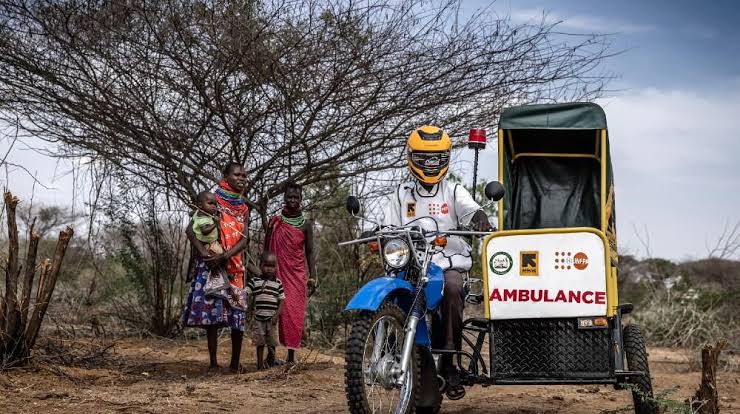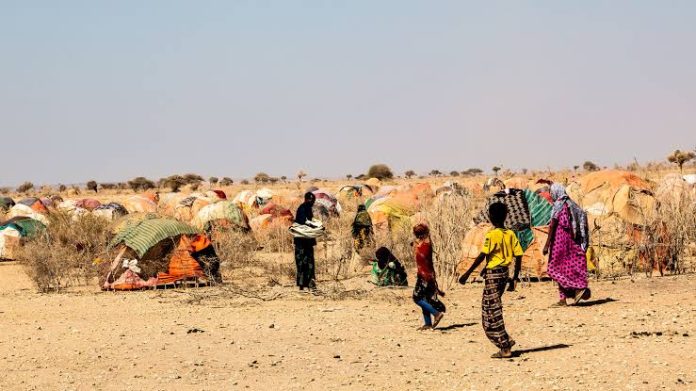Facebook Twitter (X) Instagram Somali Magazine - People's Magazine
The United Nations Population Fund (UNFPA) has extended crucial support to communities in Ethiopia’s Somali Region affected by the devastating El Niño-induced drought. In response to the ongoing humanitarian crisis, UNFPA has supplied reproductive health medicines, equipment, and essential materials to enhance Basic and Comprehensive Obstetric and Newborn Care services across four health centers and the Sitti Zonal Hospital.
The delivered supplies include 15 delivery coaches, 15 beds with mattresses, 2,600 clean delivery kits, 2,800 packs of iron folate, 1,500 dignity kits, and eight tents to aid healthcare facilities struggling to meet the needs of drought-affected populations. The handover of these critical resources was part of UNFPA’s ongoing mandate to address emergency responses related to reproductive health, HIV & AIDS, and gender-based violence in crisis-stricken areas.
Victor Rakoto, Deputy Representative of UNFPA Ethiopia, emphasized the organization’s commitment to providing timely support to alleviate the suffering of affected communities. He highlighted that the humanitarian aid was informed by a recent facility-based rapid assessment conducted across five drought-affected woredas in the Sitti Zone. This assessment helped identify the most urgent needs and ensured that the provided supplies effectively addressed the pressing challenges faced by local healthcare providers.
The prolonged drought, exacerbated by El Niño’s disruption of rainfall patterns, has severely impacted multiple regions across Ethiopia, leaving millions in urgent need of humanitarian assistance. In response to the crisis, UNFPA developed a comprehensive operational plan aligned with the Ethiopian government’s 2016 Humanitarian Requirement Document. This plan focuses on accelerating emergency reproductive health responses to support women and girls, ensuring that their essential health needs are met during the ongoing crisis.

The official handover ceremony took place in the presence of key stakeholders, including representatives from the Somali Region Women and Children Affairs Bureau, the Health Bureau, Sitti Zone officials, and local Woreda coordinators. Their collective efforts aim to strengthen healthcare services and improve access to life-saving maternal and newborn care for communities facing severe drought-related hardships.
UNFPA’s intervention is a critical step in safeguarding the health and dignity of women and girls in the Somali Region, where access to healthcare services has been significantly disrupted by the drought. The provision of dignity kits, which include essential hygiene items, helps to address the specific needs of women and girls, ensuring they can maintain their personal hygiene and dignity during this challenging period.
As the drought continues to affect large parts of Ethiopia, the need for sustained humanitarian support remains critical. UNFPA, alongside its partners, is committed to providing ongoing assistance to the most vulnerable populations, advocating for the integration of reproductive health services in all emergency response efforts. The organization’s work underscores the importance of prioritizing the health and well-being of women and girls, even in the face of climate-induced disasters.
The impact of the drought has extended beyond immediate health concerns, affecting food security, livelihoods, and access to basic services across the region. Women and girls are particularly vulnerable to the cascading effects of the crisis, with increased risks of malnutrition, gender-based violence, and disruptions in access to maternal healthcare. UNFPA’s efforts aim to bridge these gaps by providing essential resources and advocating for long-term solutions to strengthen healthcare resilience in drought-affected areas.
Through partnerships with local government bodies and community organizations, UNFPA continues to work towards building sustainable healthcare systems that can withstand future shocks. The organization’s commitment to delivering targeted interventions demonstrates its dedication to upholding the reproductive health rights of women and girls in the face of ongoing climate challenges.
With the humanitarian response ongoing, UNFPA calls for continued international support and collaboration to ensure that the needs of Ethiopia’s most vulnerable populations are met. The organization remains steadfast in its mission to create a world where every pregnancy is wanted, every childbirth is safe, and every young person’s potential is fulfilled, even in times of crisis.

